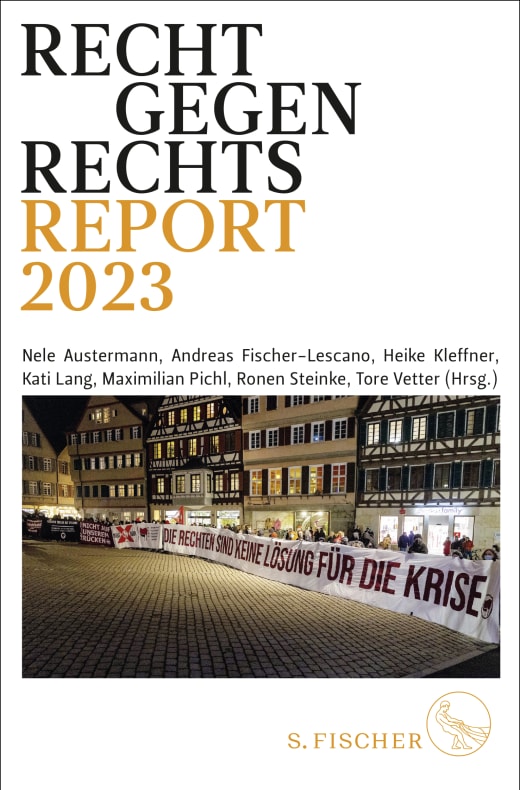
In Nele Austermann, Andreas Fischer-Lescano, Heike Kleffner, Kati Lang, Maximilian Pichl, Ronen Steinke, & Tore Vetter (Hrsg.), Recht gegen rechts, 307–314. Frankfurt am Main: S. Fischer.

In Nele Austermann, Andreas Fischer-Lescano, Heike Kleffner, Kati Lang, Maximilian Pichl, Ronen Steinke, & Tore Vetter (Hrsg.), Recht gegen rechts, 307–314. Frankfurt am Main: S. Fischer.
„Widerspruch ist ein wichtiger Motor wissenschaftlicher Praxis und Erkenntnis. Ihn besser zu verstehen kann helfen, unsere Realitätsfähigkeit zu steigern.“
Norman Sieroka
»Foucault spricht vom Widerspruch als die Illusion einer Einheit.«
Ingo H. Warnke
„Widerspruch ist oft nicht primär ein (aufzu)lösendes Problem, sondern eine Antriebskraft, ohne die es nicht geht.“
Martin Nonhoff
„Widersprüche müssen artikuliert werden, damit sie existieren.“
Martin Nonhoff
“Contradiction comes in many different forms. None is so debilitating than when the coloniser transitions, textually not politically, to decoloniality without taking the responsibility for the afterlife of colonialism, which they continue to benefit from. Self-examination and self-interrogation of the relations of coloniality, a necessity, seem nearly impossible for the coloniser who continues to act as beneficiary, masked in the new-found language of White fragility, devoid of an ethical responsibility of the very system of White domination they claim to be against.” (Black Consciousness and the Politics of the Flesh)
Rozena Maart